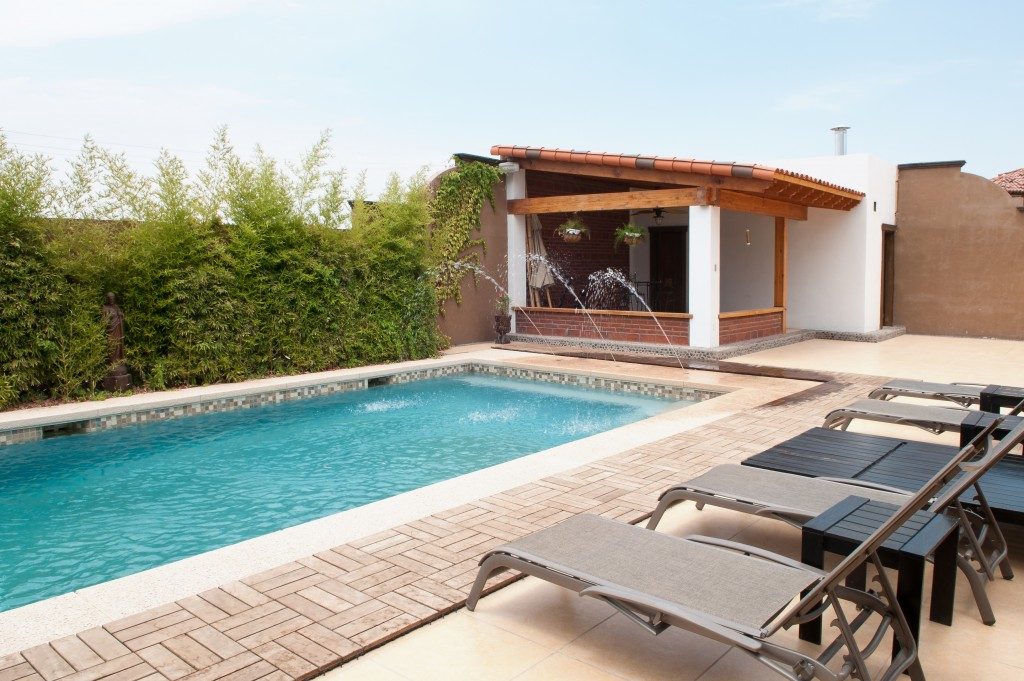There are a lot of healthy benefits derived from swimming. Swimming builds endurance, muscle strength and cardiovascular fitness. It also tones your muscles and helps you maintain your ideal weight, while helping you maintainng a healthy heart and lungs.
Swimming, being a low-impact activity, is ideal for people of all ranges. Your various muscle groups are engaged but impact stress is minimized because of the buoyancy effect water with your body.
Good news for pool owners, the best type of exercise in right in your backyard. While you’re trying to get yourself in the best shape, you can do the same for your pool.
Here are some pointers on how you keep your pool in great working condition:
Clean at regular intervals
Swimming pool water has dissolved contaminants unseen by the naked eye. The most common ones are urine, sweat even lotions and cosmetics. Debris from around the property such as leaves, grass and dust also contribute to the things that make your swimming pool water dirty. If not properly maintained, your pool may contain several germs including viruses and bacteria. These may result to health problems like infection of the eyes and ears, even nose and throat infections. These medical conditions can easily be avoided when you get help from swimming pool maintenance.
Clear the drains

Your swimming pool drain is technically not a drain but an outlet. This outlet houses a pipe that runs to the pump. This pump sucks water through a skimmer then to a filter. The filtered water the runs to a heater, in case you have one, then back to your pool passing through multiple inlets. Regular draining and filtering will keep your swimming pool water clean and the water clear for a refreshing dip.
Maintain Chlorine levels
Maintaining safe chemical levels in your swimming pool water is an important part of swimming pool maintenance. Too much chlorine can irritate the eyes and skin of a swimmer. You must have basic knowledge about the safe levels of chemicals for your swimming pool.
Water alkalinity is also a concern with your swimming pool water. Alkalinity is the measure of the water’s ability to neutralize water acidity. Too much acid in your swimming pool water can cause eye irritation to swimmers. It may even damage metal parts of your pool equipment.
Do consistent preventive maintenance
Check the hair and lint strainer and clean when necessary. Pool surfaces need to be scrubbed to remove algae that may have invaded your pool. Vacuuming is another task in pool maintenance. Debris in the pools bottom is unsightly and may provide a home for algae growth. Cleaning the water line and the gutter tile is another part of pool maintenance. These parts collect oil and dirt and may also become home for bacteria. A non- abrasive tile cleaner should be used to avoid tile scratching and assurance for continued swimming enjoyment.
Your swimming pool can give you many health benefits, not to mention the fun you will have with friends and family. And it can serve you a long time, as long as you maintain it properly.






